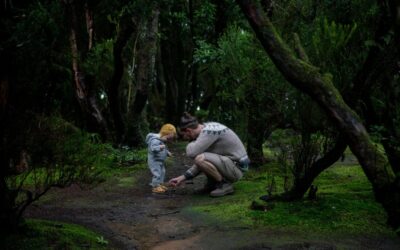Introduction: The Ever-Changing Journey of Parenting
Parenting is one of life’s most transformative experiences. From a child’s first steps to their teenage independence, every stage presents new joys, challenges, and growth opportunities. Understanding developmental milestones is essential for parents who wish to nurture their child’s emotional, physical, and intellectual growth effectively. This comprehensive guide explores the critical stages of development — from toddlerhood to the teenage years — and offers practical tips to help parents support their child through each phase.
Toddler Years (Ages 1–3): The Foundation of Growth
Key Milestones
- Physical: Walking, climbing, and developing fine motor skills.
- Language: Rapid vocabulary growth — from single words to short sentences.
- Social: Beginning to express emotions and seek independence.
Parenting Tips
- Encourage curiosity through play and exploration.
- Introduce simple routines for security and discipline.
- Speak frequently to build early language and comprehension skills.
toddler development milestones, 2-year-old growth chart, language development in toddlers
parenting toddlers tips
Watching your 2-year-old grow is such a wild ride! You’ll see so many toddler development milestones unfolding, like shifting from wobbly steps to confident running, stacking taller towers, and starting to show real independence. While every child is different, checking the 2-year-old growth chart with your pediatrician helps ensure they’re on their own unique track. One of the most exciting parts is the boom in language development in toddlers; suddenly, they’re stringing two or three words together, repeating everything, and their little personalities just shine through their new words. It can be a tricky age with big emotions, so the best parenting toddlers tips often boil down to patience, consistency with simple rules, offering choices, and giving tons of hugs – they’re learning so much, so fast!
Preschool Years (Ages 3–5): Building Confidence and Creativity
Key Milestones
Cognitive: Problem-solving, imagination, and understanding cause and effect.
Social: Learning to share, cooperate, and form friendships.
Emotional: Beginning to regulate emotions and understand empathy.
Parenting Tips
Provide creative outlets such as art, storytelling, and pretend play.
Set gentle boundaries to teach respect and responsibility.
Read daily — reading boosts early literacy and imagination.
preschool learning milestones, social development in children, early childhood education tips.
School-Age Years (Ages 6–12): Building Character and Competence Key Milestones
Academic: Reading comprehension, writing, math reasoning.
Social: Developing friendships and teamwork skills.
Emotional: Building self-esteem and moral understanding.
Parenting Tips
Encourage consistent study habits and reward effort, not just success.
Foster resilience by teaching children to handle setbacks.
Keep communication open — this builds trust and emotional intelligence.
Child development 6–12 years, emotional intelligence in kids, how to motivate school-age children.
Teenage Years (Ages 13–19): Independence and Identity
Key Milestones
Physical: Puberty brings rapid growth and hormonal changes.
Cognitive: Abstract thinking, decision-making, and identity formation.
Social: Desire for independence, peer influence, and self-discovery.
Parenting Tips
Respect privacy but stay involved in your teen’s life.
Encourage open conversations about mental health, relationships, and values.
Help them set personal goals to develop responsibility and self-discipline.
The Parent’s Role: Guiding Without Controlling
Throughout each stage, your role evolves from caretaker to coach to confidant. The key is to balance guidance with independence — offering support while allowing children to make choices and learn from experience. Every child develops at their own pace, so celebrate progress rather than perfection.
Cognitive Development and Critical Thinking
Teenagers start thinking abstractly and forming their own values and beliefs. Encourage debates, discussions, and real-world problem-solving to nurture independent thinking.
Balancing Freedom and Responsibility
This is the time to build mutual trust. Give your teen opportunities to make decisions and take responsibility. Independence strengthens self-confidence and prepares them for adulthood.
Social Relationships and Mental Health
Friendships, romantic interests, and identity exploration define adolescence. Parents should remain approachable — a trusted guide rather than a strict authority. Regular check-ins about emotions, stress, and goals can prevent anxiety or isolation.
The Parent’s Role Across All Stages: Guide, Don’t Dictate
Parenting evolves as your child grows. You start as a caretaker, then become a mentor, and finally a coach. Children thrive when they feel loved, understood, and respected. Balance structure with freedom, and remember: listening is as powerful as teaching.
Consistency, empathy, and communication are the golden rules of effective parenting. Celebrate small victories, acknowledge struggles, and adapt your approach to match your child’s developmental needs.
Common Parenting Mistakes to Avoid
- Comparing children – Every child develops at a different pace. Comparison harms confidence.
- Overprotection – Shielding kids from every challenge prevents resilience.
- Ignoring emotional needs – Children need validation as much as guidance.
- Inconsistent discipline – Clear rules and predictable consequences build trust.
- Neglecting self-care – A healthy parent raises emotionally healthy children.
How to Support Development Holistically
Physical Health: Encourage exercise, nutrition, and sufficient sleep.
Emotional Health: Practice empathy and provide a safe emotional outlet.
Cognitive Growth: Stimulate curiosity with books, puzzles, and real-world learning.
Social Skills: Promote teamwork, kindness, and communication.
Conclusion: Growing Together, One Stage at a Time
Parenting is not about perfection — it’s about progress. From the curious toddler who takes their first step to the confident teen preparing to face the world, every milestone is a shared victory.
By understanding and supporting your child’s development, you not only guide their growth but also evolve as a parent yourself. After all, raising a child is not just about shaping their future — it’s about growing together through every moment.
From toddler tantrums to teenage transitions, parenting is an ongoing journey of learning, patience, and unconditional love. By understanding child development milestones and adapting your parenting approach at each stage, you empower your child to thrive — emotionally, socially, and intellectually.



